Royalrhythm - Artemis
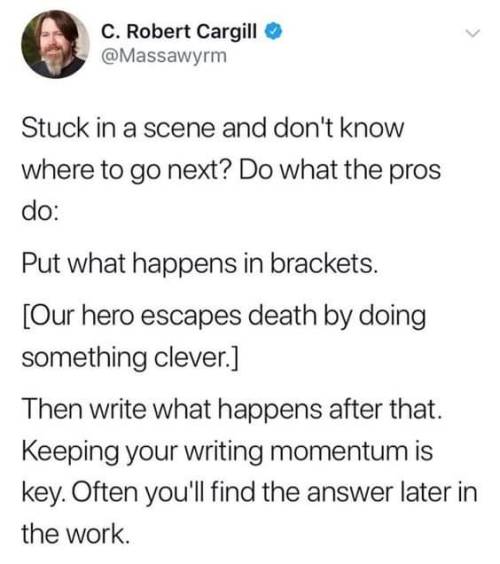
More Posts from Royalrhythm and Others
Resources for Writing Injuries

Patreon || Ko-Fi || Masterlist || Work In Progress
–
Head Injuries
General Information | More
Hematoma
Hemorrhage
Concussion
Edema
Skull Fracture
Diffuse Axonal Injury
Neck
General Information
Neck sprain
Herniated Disk
Pinched Nerve
Cervical Fracture
Broken Neck
Chest (Thoracic)
General Information
Aortic disruption
Blunt cardiac injury
Cardiac tamponade
Flail chest
Hemothorax
Pneumothorax (traumatic pneumothorax, open pneumothorax, and tension pneumothorax)
Pulmonary contusion
Broken Ribs
Broken Collarbone
Abdominal
General Information
Blunt trauma
Penetrating injuries (see also, gunshot wound & stab wound sections)
Broken Spine
Lung Trauma
Heart (Blunt Cardiac Injury)
Bladder Trauma
Spleen Trauma
Intestinal Trauma
Liver Trauma
Pancreas Trauma
Kidney Trauma
Arms/Hands/Legs/Feet
General Information | More
Fractures
Dislocations
Sprains
Strains
Muscle Overuse
Muscle Bruise
Bone Bruise
Carpal tunnel syndrome
Tendon pain
Bruises
Injuries to ligaments
Injuries to tendons
Crushed Hand
Crushed Foot
Broken Hand
Broken Foot
Broken Ankle
Broken Wrist
Broken Arm
Shoulder Trauma
Broken elbow
Broken Knee
Broken Finger
Broken Toe
Face
General Information
Broken Nose
Corneal Abrasion
Chemical Eye Burns
Subconjunctival Hemorrhages (Eye Bleeding)
Facial Trauma
Broken/Dislocated jaw
Fractured Cheekbone
Skin & Bleeding
General Information (Skin Injuries) | More (Arteries)
femoral artery (inner thigh)
thoracic aorta (chest & heart)
abdominal aorta (abdomen)
brachial artery (upper arm)
radial artery (hand & forearm)
common carotid artery (neck)
aorta (heart & abdomen)
axillary artery (underarm)
popliteal artery (knee & outer thigh)
anterior tibial artery (shin & ankle)
posterior tibial artery (calf & heel)
arteria dorsalis pedis (foot)
Cuts/Lacerations
Scrapes
Abrasions (Floor burns)
Bruises
Gunshot Wounds
General Information
In the Head
In the Neck
In the Shoulders
In the Chest
In the Abdomen
In the Legs/Arms
In the Hands
In The Feet
Stab Wounds
General Information
In the Head
In the Neck
In the Chest
In the Abdomen
In the Legs/Arms
General Resources
Guide to Story Researching
A Writer’s Thesaurus
Words To Describe Body Types and How They Move
Words To Describe…
Writing Intense Scenes
–
Masterlist | WIP Blog
If you enjoy my blog and wish for it to continue being updated frequently and for me to continue putting my energy toward answering your questions, please consider Buying Me A Coffee, or pledging your support on Patreon, where I offer early access and exclusive benefits for only $5/month.
Shoutout to my $15+ patrons, Jade Ashley and Douglas S.!
Are there other words like egregious where their meanings are antonyms?
you bet your butt there is! they’re called contronyms
(before getting into the words, I should clarify that the following words words aren’t really contronyms. Instead, their new definition is the opposite of the more archaic one)
artificial new definition: made or produced by human beings rather than occurring naturally.artificial old definition: artfully or skillfully made.awful new definition: very bad or unpleasant.awful old definition: inspiring reverential wonder.harlot new definition: a mischievous man.harlot old definition: a prostitute or promiscuous woman.resentment new definition: bitter indignation at having been treated unfairly.resentment old definition: the quality of being thankful.specious new definition: misleading in appearance, especially misleadingly attractive.specious old definition: fair or beautiful.symposium new definition: a drinking party.symposium old definition: a conference or meeting to discuss a particular subject.terrific new definition: of great size, amount, or intensity.terrific old definition: making someone afraid or anxious; terrifying.
then there are words that can mean one of two things which are opposite! (the true contronyms)
bitch: someone who is over aggressive or domineering OR someone who is excessively submissiveclip: to bind together OR to seperatedust: remove the dust from something OR apply dust to somethingoff: to turn off (a light) OR the go off (an alarm)resign: can either be resign or re-signseed: lay down seed OR remove the seeds from somethingstone: throw stones at OR remove the stone from a fruit (peaches, plums etc.)
thank you for the ask
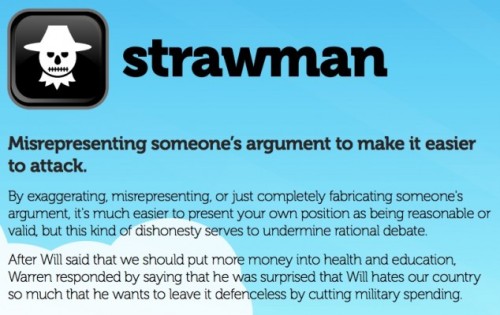
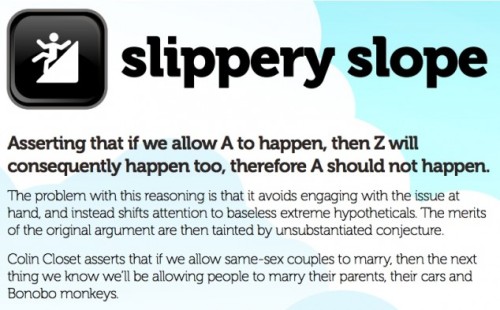
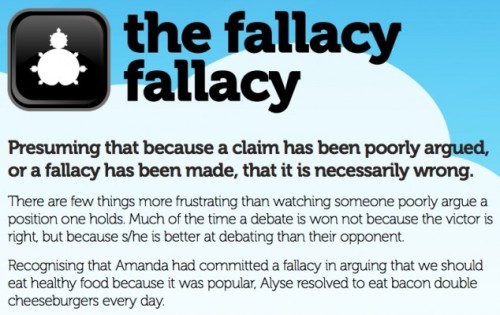
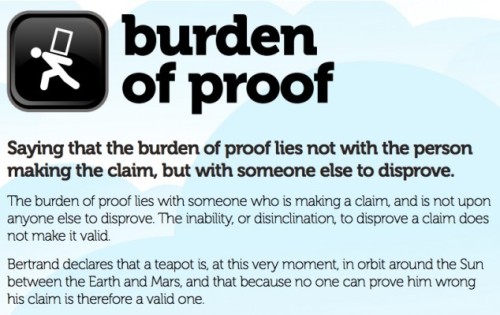
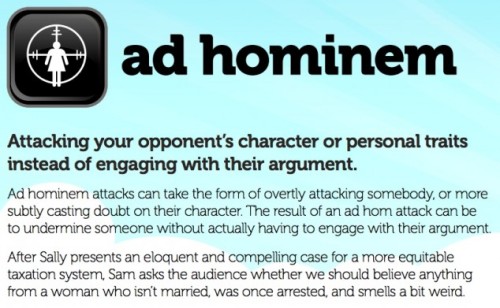
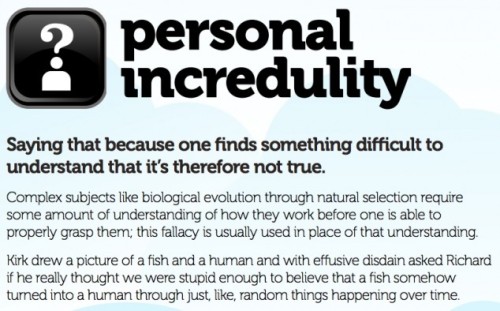
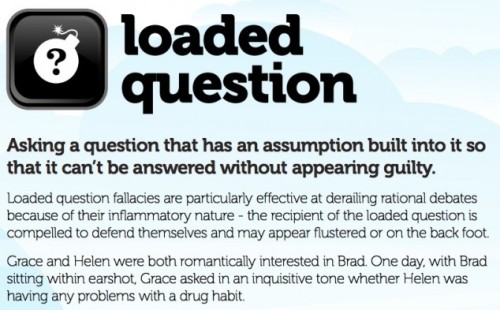
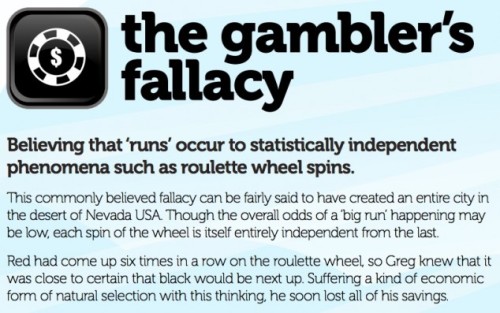
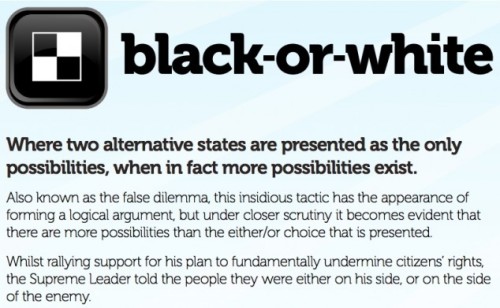
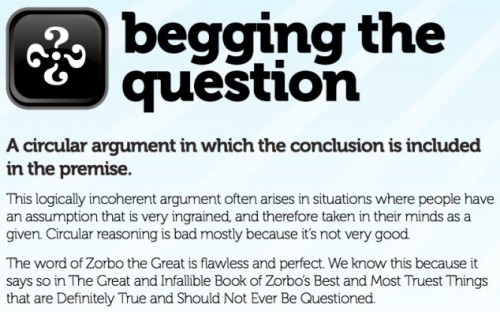
100 Words for Facial Expressions
1. Absent: preoccupied 2. Agonized: as if in pain or tormented 3. Alluring: attractive, in the sense of arousing desire 4. Appealing: attractive, in the sense of encouraging goodwill and/or interest 5. Beatific: see blissful 6. Bilious: ill-natured 7. Black: angry or sad, or see hostile 8. Bleak: see grim and hopeless 9. Blinking: surprise, or lack of concern 10. Blissful: showing a state of happiness or divine contentment 11. Blithe: carefree, lighthearted, or heedlessly indifferent 12. Brooding: see anxious and gloomy 13. Bug eyed: frightened or surprised 14. Chagrined: humiliated or disappointed 15. Cheeky: cocky, insolent 16. Cheerless: sad 17. Choleric: hot-tempered, irate 18. Coy: flirtily playful, or evasive 19. Crestfallen: see despondent 20. Darkly: with depressed or malevolent feelings 21. Deadpan: expressionless, to conceal emotion or heighten humor 22. Dejected: see despondent 23. Derisive: see sardonic 24. Despondent: depressed or discouraged 25. Doleful: sad or afflicted 26. Dour: stern or obstinate; see also despondent 27. Downcast: see despondent 28. Dreamy: distracted by daydreaming or fantasizing 29. Ecstatic: delighted or entranced 30. Etched: see fixed 31. Faint: cowardly, weak, or barely perceptible 32. Fixed: concentrated or immobile 33. Furtive: stealthy 34. Gazing: staring intently 35. Glancing: staring briefly as if curious but evasive 36. Glaring: see hostile 37. Glazed: expressionless due to fatigue or confusion 38. Gloomy: see despondent and sullen 39. Glowering: annoyed or angry 40. Glowing: see radiant 41. Grim: see despondent; also, fatalistic or pessimistic 42. Grave: serious, expressing emotion due to loss or sadness 43. Haunted: frightened, worried, or guilty 44. Hopeless: depressed by a lack of encouragement or optimism 45. Hostile: aggressively angry, intimidating, or resistant 46. Hunted: tense as if worried about pursuit 47. Impassive: see deadpan 48. Inscrutable: mysterious, unreadable 49. Jeering: insulting or mocking 50. Languid: lazy or weak 51. Leering: see meaningful; also, sexually suggestive 52. Meaningful: to convey an implicit connotation or shared secret 53. Mild: easygoing 54. Mischievous: annoyingly or maliciously playful 55. Moody: see sullen 56. Pained: affected with discomfort or pain 57. Pallid: see wan 58. Peering: with curiosity or suspicion 59. Peeved: annoyed 60. Petulant: see cheeky and peeved 61. Pitying: sympathetic 62. Pleading: seeking apology or assistance 63. Pouting: see sullen 64. Quizzical: questioning or confused 65. Radiant: bright, happy 66. Roguish: see mischievous 67. Sanguine: bloodthirsty, confident 68. Sardonic: mocking 69. Scornful: contemptuous or mocking 70. Scowling: displeased or threatening 71. Searching: curious or suspicious 72. Set: see fixed 73. Shamefaced: ashamed or bashful 74. Slack-jawed: dumbfounded or surprised 75. Sly: cunning; see also furtive and mischievous 76. Snarling: surly 77. Sneering: see scornful 78. Somber: see grave 79. Sour: unpleasant 80. Stolid: inexpressive 81. Straight-faced: see deadpan 82. Sulky: see sullen 83. Sullen: resentful 84. Taunting: see jeering 85. Taut: high-strung 86. Tense: see taut 87. Tight: see pained and taut 88. Unblinking: see fixed 89. Vacant: blank or stupid looking 90. Veiled: see inscrutable 91. Wan: pale, sickly; see also faint 92. Wary: cautious or cunning 93. Wide eyed: frightened or surprised 94. Wild eyed: excited, frightened, or stressful 95. Wistful: yearning or sadly thoughtful 96. Withering: devastating; see also wrathful 97. Woeful: full of grief or lamentation 98. Wolfish: see leering and mischievous 99. Wrathful: indignant or vengeful 100. Wry: twisted or crooked to express cleverness or a dark or ironic feeling
Okay I'm not sure if you've posted something like this before but how do I go about designing a character that I have the foundation of in my head but nothing else? Where do I start? How do I keep momentum going?
Hmm. I think I have the perfect set of resources for you:
Giving Characters Bad Traits
Having Trouble Connecting To Your Characters?
Writing People Of Color
Writing Children
Useful Writing Resources
Useful Writing Resources II
Resources For Describing Characters
Resources For Creating Characters
Ways To Fit Character Development Into your Story
Writing Good Villains
Interview As Your Character
31 Days Of Character Development: Wordsnstuff May Writing Challenge
Let me know if it helps, and if there’s still some things you need some extra input on!
–
If you enjoy my blog and wish for it to continue being updated frequently and for me to continue putting my energy toward answering your questions, please consider Buying Me A Coffee or supporting me on Patreon.
Wordsnstuff also has a newsletter, which you can subscribe to by filling out the pop up on wordsnstuffblog.com.
I’d also really appreciate it if you would check out my separate blog dedicated to my current work in progress. I also run writing sprints over on snapchat.
Tense Change
I have a tendency to switch between tenses because I write some present-tense stories and I wonder if you have any tips to combat that. - srngdrgn
The first bit of advice I have for you is to focus more on writing now and then worry about your tense use in the revising stage. When re-reading your work, use a highlighter to mark all the places in which you strayed for your desired tense. Then you have visual representation of how much you need to re-work (which isn’t usually that difficult to do) and you may find yourself adding extra plot devices in.
How to Avoid Tense Change in Fiction Writing [there’s advice from Stephen King in here]
How to Avoid Tense Switches
I think the best thing for you to do is be aware while you’re writing. It’s not a huge deal if you mix up tenses so long as you’re prepared to go back and fix it in the editing and revising stages.
Color Synonyms
White

also: pale; blanched; sallow; pallid; waxen; spectral; translucent; albino;
Grey
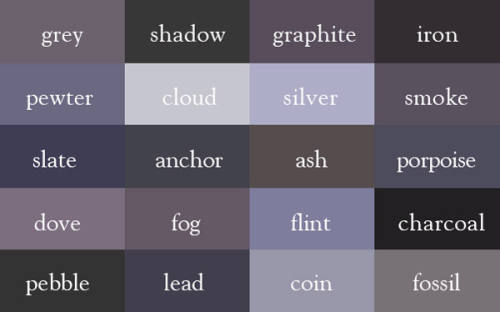
also: dust; stone; pepper;
Black

also: coal; slate; dusky; ebon; shadow; murky;
Tan

also: flesh; khaki; cream; tawny;
Brown

also: henna; russet; sepia; chestnut; cocoa; drab; bronze;
Red

also: terracotta ; rouge; carmine; fire-engine; ruddy
Orange

also: pumpkin ; rust ;
Yellow

also: sunny; amber; saffron; hay; straw; platinum;
Green

also: viridescent; grass; jade; forest;
Blue

also: turquoise; cyan; ultramarine; royal; aqua; aquamarine;
Purple

also: berry; amaranthine;
Pink

also: flushed; candy; cherry blossom; petal pink ;
—– source: http://ingridsundberg.com/
—–additional synonyms added by me
A Flirting Guide For Writers (And Real World Usage)
I reblogged a post a day or so ago, and the result (which made me sad) was mostly people saying that they feel they cannot flirt (and therefore cannot write it effectively).
So I thought I’d share my own, admittedly limited, knowledge (under the guise of writing advice) so that you can all write kick-ass romance and show your feelings like the boss-ass-bitches you are!
The Basics; Eye-Contact, Personal Space, Body Language
The thing about flirting is that most of it is non-verbal, and the world is split between those writers who find this part the easiest, and those who find it the most incomprehensible.
The problem is that it’s all dependent on a fine, mostly unspoken, line which makes the interaction creepy if crossed. When writing a character who is trying to flirt with someone, or when trying to flirt with someone yourself, you need to keep three main things in mind; personal space, body language, and potential restriction. This is especially important for men. The problem is that this is mostly instinctual, and so it can be hard to write if you haven’t had time to develop the right skills yourself.
Personal space
When trying to show that your character is flirting you need to make a note of them moving into the other person’s personal space but not too much. Consider this; someone leaning into your space just a little to speak to you versus someone being practically nose to nose with you. One catches your attention, the other is uncomfortable at best and intimidating at worst. The idea is to lean in enough to show interest and create a sense of intimacy, without becoming overbearing or threatening. As a rule, I find that I begin to feel uncomfortable if a man I’m not sure of gets closer than the distance it would take to perform a ballroom Waltz.
To get an idea of how that looks, hold up your hand at arms length as if pushing someone away or pressing against a wall. Now slowly bend your elbow until the point sits just under your breast or pectoral muscle.
That’s the maximum personal space invasion I allow from people I don’t know well. In my experience, this is common to many women, though others prefer more space. Likewise, in my experience, men I have met seemed perfectly comfortable with me being closer than even that, but I am small, relatively unthreatening, and we have to allow for the fact that we were in the position of viewing each other as romantic interests. Men may prefer more space from other men, or from individuals that they do not see in a romantic light already. This changes from person to person, and noting your characters preference is a good way to show what kind of person they are.
Eye-Contact
Another fundamental which relies on instinct subtlety; conventional wisdom says that you should make eye-contact in order to show interest. Actual wisdom will also tell you that too much becomes intense and a little creepy. If your character holds someone’s eye for too long its becomes fixative rather than flirtatious; it becomes staring. Depending on your character and their interest this can either read as obsessive, creepy, or aggressive.
Flirtatious eye contact can take a few forms;
1 - the “getting caught” method where a person looks at someone and quickly looks away again. When caught have your character (or yourself) look away quickly and then back, hold eye contact for a few moments and then acknowledge the other person. A smile, wink, or nod will suffice for this.
2 - the “lash” method where someone, usually a woman, catches their crushes eye, looks down, and then back up from under the lashes. Also very effective when done by men with big eyelashes.
3 - the “full cheese” method by which someone winks, grins, or wiggles their eyebrows. This is effective when used sparingly.
If your character also touches the person they are flirting with lightly, this will build tension. The touch should be gentle, but obviously deliberate. Avoid possessive gestures like gripping or pulling, however.
Body Language
When flirting, the body language of both people is important; your character should watch their crush for signs of interest and/or discomfort.
Positive signs; leaning in, touching, playing with hair, smiling, licking or biting lips, tilting their head slightly, mirroring.
Negative signs; leaning away, crossing arms, pursing lips, refusing to make eye-contact, raising their shoulders, crossing their legs away from the other person, frowning, clenching jaw, balling fists.
This body language can apply to both characters in the scene.
Advanced Techniques; Verbal Cues, Suggestions, And Other Senses
This is the shit I thrive on, as a writer you will probably feel the same way; I notice the sounds, smells, and textures of another person as well as what they say (in fact, when you read my work you’ll notice that the smell of any romantic lead is noted upon more than once).
Verbal Cues
This is the thing that most people focus upon when it comes to discussions or attempts at flirtation. The verbal sparring that comes with flirting is what really gets our stomachs churning and our hearts pulsing… but why are some people so naturally good at it, while others are… less so?
And why does some of the most vapid and run-of-the-mill stuff seem to work between the right people?
Well, the sad news for your unlovely characters is that physical attraction makes us more likely to respond to even the most poorly constructed of verbal flirtation. Then again, beauty is in the eye of the beholder so even the least pretty of characters could find themselves flirting up a storm with the right person.
Verbal cues include;
- Gentle teasing
- Compliments
- Inside jokes
- Using someone’s name (yes, really)
- Asking questions and responding in a thoughtful way
- Sexual innuendo (when used tastefully and sparingly)
Suggestion
This is the easiest to miss or overshoot because it’s a combination of everything else we’ve already covered. For example, your character saying to a friend,
“I’m just going to hop into the shower, talk soon.”
Is not a suggestive statement. Now imagine your character flirting with someone on the phone before sighing and saying,
“I’m going to take a shower… I’ll speak to you soon, ok?”
The difference is subtle but important; the second suggests that they don’t want to stop talking to the other person, that they definitely want to speak to them again as soon as possible, and subtly encourages the other person to consider them in the shower. You see?
Easy to miss, easy to fudge. Suggestion is hard to pull off, and hard to write, but think of it this way - suggestion;
1) Encourages the other person to think of you/your character in an intimate way
2) Implies enjoyment in and desire for their presence
3) Is open-ended and encourages reciprocation
The Other Senses
This is not so much flirting, but the act of making your character/yourself as appealing as possible to another. Personal hygiene, a good fashion sense, and good manners are a part of this.
But -
When writing about this you should not discuss it directly unless your character is making a conscious choice. Instead, focus on the character that yours is focussed upon.
- How do they smell?
- What are the textures of their clothes?
- What manners do they affect?
- Does their voice have a texture?
- Do they touch your character a lot?
- Do they note upon your characters smell or noticeably try to take in their smell?
- Do they react noticeably to your character’s voice or mannerisms?
This is just a basic guide, of course, but if you get this down you’re in a good position to build romantic tension in every walk of life!
If you found this post useful and you want to help keep me writing, you can support me through Kofi!
55 Words to Describe Someone's Voice
I was sitting on the computer last night trying to be productive and actually write something. My first sentence included the character listening to a voice through an intercom and my first thought was, “What kind of voice is it?"
So, naturally, I found myself googling the different ways to describe a voice. I present to you my findings! I hope you all find it useful.
What you can say instead of the word beautiful:
lovely,
charming,
delightful,
appealing,
engaging,
winsome
ravishing,
gorgeous,
heavenly,
stunning,
arresting,
glamorous,
irresistible,
bewitching,
beguiling
graceful,
elegant,
exquisite,
aesthetic,
artistic,
decorative,
magnificent
-
 reblogsforfun reblogged this · 3 weeks ago
reblogsforfun reblogged this · 3 weeks ago -
 redundare reblogged this · 3 weeks ago
redundare reblogged this · 3 weeks ago -
 whatsinanamehonestly reblogged this · 3 weeks ago
whatsinanamehonestly reblogged this · 3 weeks ago -
 lirioprince liked this · 3 weeks ago
lirioprince liked this · 3 weeks ago -
 ladyreblogsalot reblogged this · 3 weeks ago
ladyreblogsalot reblogged this · 3 weeks ago -
 normalofficeworker liked this · 3 weeks ago
normalofficeworker liked this · 3 weeks ago -
 normalofficeworker reblogged this · 3 weeks ago
normalofficeworker reblogged this · 3 weeks ago -
 gayfrogswithhats liked this · 3 weeks ago
gayfrogswithhats liked this · 3 weeks ago -
 chuuyamylovewhygay liked this · 3 weeks ago
chuuyamylovewhygay liked this · 3 weeks ago -
 clowncarfullofrats liked this · 4 weeks ago
clowncarfullofrats liked this · 4 weeks ago -
 nightmaricwriter reblogged this · 4 weeks ago
nightmaricwriter reblogged this · 4 weeks ago -
 shitpostingsystem reblogged this · 4 weeks ago
shitpostingsystem reblogged this · 4 weeks ago -
 shitpostingsystem liked this · 4 weeks ago
shitpostingsystem liked this · 4 weeks ago -
 zsenilla reblogged this · 4 weeks ago
zsenilla reblogged this · 4 weeks ago -
 thelegendofnovi liked this · 4 weeks ago
thelegendofnovi liked this · 4 weeks ago -
 irresponsible-masochist reblogged this · 4 weeks ago
irresponsible-masochist reblogged this · 4 weeks ago -
 missnemo liked this · 1 month ago
missnemo liked this · 1 month ago -
 ioqayin-personal liked this · 1 month ago
ioqayin-personal liked this · 1 month ago -
 doctormur liked this · 1 month ago
doctormur liked this · 1 month ago -
 pumpkinlight504 liked this · 1 month ago
pumpkinlight504 liked this · 1 month ago -
 catcat546321 liked this · 1 month ago
catcat546321 liked this · 1 month ago -
 jingyichickenwings liked this · 1 month ago
jingyichickenwings liked this · 1 month ago -
 seph7 reblogged this · 1 month ago
seph7 reblogged this · 1 month ago -
 seph7 liked this · 1 month ago
seph7 liked this · 1 month ago -
 barian-phoenix-nvbh reblogged this · 1 month ago
barian-phoenix-nvbh reblogged this · 1 month ago -
 randomness-in-motion reblogged this · 1 month ago
randomness-in-motion reblogged this · 1 month ago -
 randomness-in-motion liked this · 1 month ago
randomness-in-motion liked this · 1 month ago -
 kalifornian-unikko liked this · 1 month ago
kalifornian-unikko liked this · 1 month ago -
 missjackson-15 liked this · 1 month ago
missjackson-15 liked this · 1 month ago -
 eden25 liked this · 1 month ago
eden25 liked this · 1 month ago -
 lacubegi liked this · 1 month ago
lacubegi liked this · 1 month ago -
 kikizoshi reblogged this · 1 month ago
kikizoshi reblogged this · 1 month ago -
 kikizoshi liked this · 1 month ago
kikizoshi liked this · 1 month ago -
 starry-night1998 reblogged this · 1 month ago
starry-night1998 reblogged this · 1 month ago -
 the-silence-in-between reblogged this · 1 month ago
the-silence-in-between reblogged this · 1 month ago -
 oddeyesight reblogged this · 1 month ago
oddeyesight reblogged this · 1 month ago -
 oddeyesight liked this · 1 month ago
oddeyesight liked this · 1 month ago -
 crimsonsleuth reblogged this · 1 month ago
crimsonsleuth reblogged this · 1 month ago -
 kawaiimessiah reblogged this · 1 month ago
kawaiimessiah reblogged this · 1 month ago -
 kuruising liked this · 1 month ago
kuruising liked this · 1 month ago -
 darkfalcon-z reblogged this · 1 month ago
darkfalcon-z reblogged this · 1 month ago -
 desmosghost liked this · 1 month ago
desmosghost liked this · 1 month ago -
 bootesstar reblogged this · 1 month ago
bootesstar reblogged this · 1 month ago -
 flareon-my-wayward-son reblogged this · 1 month ago
flareon-my-wayward-son reblogged this · 1 month ago -
 willknightauthor reblogged this · 1 month ago
willknightauthor reblogged this · 1 month ago -
 nosleepuntilvacation reblogged this · 1 month ago
nosleepuntilvacation reblogged this · 1 month ago -
 freshavocadojuice liked this · 1 month ago
freshavocadojuice liked this · 1 month ago